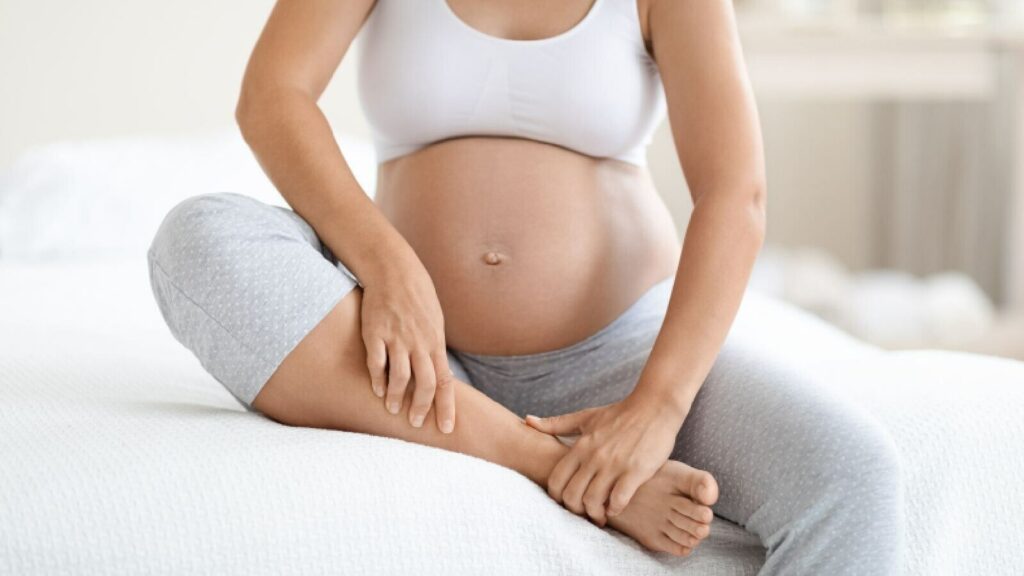Introduction: A Strong Foundation for You and Your Baby
Pregnancy is a time of remarkable physical change. Your body nourishes a growing life, but in doing so, it also demands more of your own nutrient stores especially calcium and vitamin D.
While most people associate pregnancy with foetal growth and maternal nutrition, bone health is often overlooked. Yet, it’s during these crucial months that your bones play a vital role in supporting your posture, carrying additional weight, and providing minerals to your developing baby.
Let’s explore how pregnancy affects bone health, what nutrients are essential, what risks exist, and how you can protect your bones for long-term health.
Why Bone Health Is Crucial During Pregnancy
Bones act as a reservoir for calcium, a mineral your baby needs to build its own skeleton especially during the second and third trimesters.
If your dietary intake is inadequate, your body may pull calcium from your bones to meet your baby’s needs. This can temporarily reduce your bone mineral density (BMD) and increase your risk of:
-
Weakness or fatigue
-
Leg cramps
-
Bone pain
-
Tooth decay or gum issues
-
Osteoporosis later in life (if repeated or unmanaged)
How Pregnancy Affects Your Bones
1. Calcium Demand Increases
Pregnancy requires around 1000- 1300 mg of calcium daily. If your intake is low, your bones may be used to meet foetal demands especially during peak bone transfer (third trimester).
2. Hormonal Changes
Pregnancy hormones like estrogen help protect bones, but relaxing may affect joint stability.
Also, increased parathyroid hormone (PTH) helps your body absorb more calcium, but may not be enough if your diet is deficient.
3. Vitamin D Deficiency
Vitamin D helps your body absorb calcium. Deficiency during pregnancy is common and linked to:
-
Poor fetal bone development
-
Low birth weight
-
Increased maternal bone loss
Risks of Poor Bone Health in Pregnancy
-
Transient Osteoporosis of Pregnancy (TOP): A rare condition that causes hip or joint pain and temporary bone loss in the third trimester.
-
Pregnancy-associated osteoporosis: Extremely rare but can lead to fractures (usually in the spine) in late pregnancy or postpartum.
-
Increased risk of osteoporosis post-menopause: Especially if dietary habits remain poor after childbirth.
Key Nutrients for Bone Health in Pregnancy
1. Calcium
-
Requirement: 1000–1300 mg/day
-
Sources: Milk, curd, paneer, ragi, sesame seeds, tofu, almonds, fortified plant milk
-
Tip: Spread calcium intake across meals for better absorption
2. Vitamin D
-
Requirement: 600–1000 IU/day
-
Sources: Sunlight (15–20 min/day), fortified milk, mushrooms, egg yolk
-
Consider supplements if levels are below 30 ng/mL (consult your doctor)
3. Magnesium
-
Helps in bone formation and calcium absorption
-
Sources: Pumpkin seeds, leafy greens, whole grains, lentils, dark chocolate
4. Phosphorus
-
Works with calcium to build bones
-
Sources: Milk, dal, oats, nuts, chicken, fish
5. Vitamin K
-
Supports bone matrix proteins
-
Sources: Green leafy vegetables, broccoli, kiwi, fermented foods
Lifestyle Tips for Healthy Bones During Pregnancy
✅ Eat a Balanced Diet
Include a mix of dairy, greens, legumes, and seeds every day. Add calcium-rich snacks like sesame seed chutney, ragi porridge, or almond milk smoothies.
✅ Get Morning Sunlight
Just 15–20 minutes of early sunlight (without sunscreen) helps with natural vitamin D synthesis.
✅ Stay Physically Active
Pregnancy-safe exercises like walking, prenatal yoga, or light resistance training can strengthen bones and muscles.
✅ Monitor Your Vitamin D
If you had low vitamin D pre-pregnancy or experience fatigue, joint pain, or muscle cramps, get your vitamin D levels checked.
✅ Limit Caffeine & Soda
Excess caffeine and fizzy drinks can interfere with calcium absorption. Stick to 1- 2 small cups of tea/coffee per day and avoid colas.
✅ Avoid Smoking & Alcohol
Both are harmful to bone health and foetal development.
Can Bone Loss in Pregnancy Be Reversed?
Yes. In most women, bone density returns to normal postpartum—if dietary and lifestyle practices are optimal. However, in women with multiple pregnancies, nutritional deficiencies, or eating disorders, long-term bone loss risk is higher.
Postnatal calcium and vitamin D intake is just as important, especially during breastfeeding, which also depletes calcium.
When to Seek Help
Consult your doctor or a clinical nutritionist if you:
-
Have a family history of osteoporosis
-
Follow a restricted or vegan diet
-
Experience frequent leg cramps, joint pain, or fatigue
-
Have low pre-pregnancy weight or eating disorders
-
Are pregnant with twins or multiples
Pregnancy is a time of great strength and vulnerability. While your body does an incredible job growing life, it also needs support and nourishment, especially when it comes to your bones.
By paying attention to your calcium, vitamin D, and nutrient intake, staying active, and getting regular sunlight, you’re not just supporting your baby you’re protecting your long-term bone health too.


